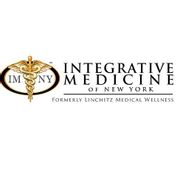What You Need to Know to Understand HIV & AIDS

If you or a loved one has been diagnosed with HIV, you likely have a lot of questions. The most important information to understand is that medical advances have transformed this disease into a survivable condition that many people live with. Find out more about HIV, AIDS, symptoms, and treatments in the guide below.
Understanding HIV & AIDS
What Is HIV?
HIV stands for human immunodeficiency virus, which is a virus that attacks your body’s immune system and interferes with your ability to ward off disease. The virus is transmitted through contact with bodily fluids or blood of an infected person, typically through unprotected sex or sharing injection needles. It can also be transmitted from mother to child during childbirth, pregnancy, or breastfeeding. Eventually, over months or years, HIV weakens your immune system enough that you can be diagnosed with AIDS or acquired immunodeficiency syndrome.
What Are the Symptoms?
 During the primary infection stage, within a month or two after you’ve been infected with the virus, you may experience flu-like symptoms such as fever, headache, muscle aches, joint pain, sore throat, rash, and swollen lymph glands for a few weeks. For the next 10 years or so, if you aren’t receiving antiretroviral therapy, you’ll enter the clinical latent infection stage, which has no symptoms other than possible persistent swelling of the lymph nodes.
During the primary infection stage, within a month or two after you’ve been infected with the virus, you may experience flu-like symptoms such as fever, headache, muscle aches, joint pain, sore throat, rash, and swollen lymph glands for a few weeks. For the next 10 years or so, if you aren’t receiving antiretroviral therapy, you’ll enter the clinical latent infection stage, which has no symptoms other than possible persistent swelling of the lymph nodes.
When your HIV infection progresses to the symptomatic stage, you may experience fever, fatigue, weight loss, diarrhea, thrush, or shingles. If the infection progresses to AIDS, these symptoms will become chronic and include night sweats, white spots or lesions in your mouth, and skin rashes or bumps.
Is There a Way to Manage the Disease?
Most people in the U.S. don’t develop AIDS, even after being infected with HIV, because of improved antiviral treatments. While there is no cure for the disease yet, regular testing can help you catch the virus early and begin management before irreparable damage is done to your immune system. Antiretroviral treatments can also help you live a longer and healthier life. You should always practice safe sex after a positive HIV test to prevent unintentionally spreading the disease.
Get the help you need to manage and live with an HIV or AIDS diagnosis by contacting Integrative Medicine of New York, PLLC in Westbury, NY. The team at this clinic uses integrative and alternative treatments to manage a host of diseases, including AIDS. They also help their patients take a more holistic and natural approach to life to help improve their overall well-being. Find out more about the treatments offered online or call (516) 759-4200 to schedule a consultation.
About the Business
Have a question? Ask the experts!
Send your question

